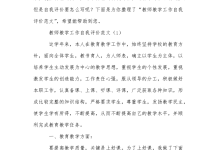
threat和threaten區(qū)別
Threaten常指不安或不祥的跡象,有計(jì)劃或故意阻礙的外表或行動(dòng),或危險(xiǎn)的來(lái)源。
Hewasseenasathreattotheestablishedorder.
他被視為現(xiàn)有制度的大敵。
Despitethethreatofwar,peoplewentabouttheirbusinessasusual.
雖然戰(zhàn)爭(zhēng)即將來(lái)臨,但人們?nèi)匀幻τ谧约旱氖虑椤?/p>
Thisisatrendwhichthreatenstheveryfabricofsociety.
這是威脅社會(huì)基本結(jié)構(gòu)的趨勢(shì)。
Theyhavethreateneduswithlegalaction.
他們起訴威脅我們。
threat怎么讀
Threat,英語(yǔ)單詞被翻譯成威脅,分析[θret]美[θr?t]。
名詞詞義:
威脅、恐嚇、恐嚇、恐嚇、恐嚇;

兇兆、惡兆、征兆、兆頭;
構(gòu)成威脅的人,構(gòu)成威脅的事物;
長(zhǎng)相,勢(shì)頭;
危險(xiǎn)、隱患;
動(dòng)詞詞義:
威脅,喘息,恐嚇。Smecouplesseesinglewomenasathreattotheirrelationships.
一些夫婦認(rèn)為單身女性是對(duì)婚姻的威脅。
Hemaybeforcedtocarryouthisthreattoresign.
他可能會(huì)被迫采取行動(dòng)威脅辭職。
Pollutionposesathreattothecontinuedexistenceofthisspecies.
污染威脅著該物種的持續(xù)生存。threat屬于類名詞,句子Wedisregardedallhisthreats里的threats不能以單數(shù)形式threat出現(xiàn);
threat后可接to的不定式。
threat然后可以連接不同的介詞,比如of,to等。





